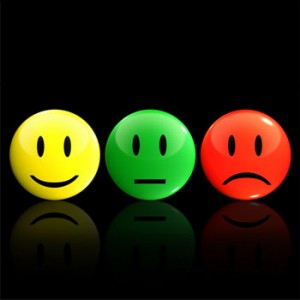 A growing malady in P-B is often called “mood disorder” or depression and one in 10 Americans take antidepressants. As is the case with physical and mental health problems in general in the U.S., the true causes of depression remain obscure or only partially understood. Take the most common treatment, antidepressants. University of Pennsylvania psychologist Jay Fournier and his team concluded, evaluating data from several studies, “… that antidepressants, despite their popularity, are no more effective than sugar pills for most people with mild or moderate depression.”
A growing malady in P-B is often called “mood disorder” or depression and one in 10 Americans take antidepressants. As is the case with physical and mental health problems in general in the U.S., the true causes of depression remain obscure or only partially understood. Take the most common treatment, antidepressants. University of Pennsylvania psychologist Jay Fournier and his team concluded, evaluating data from several studies, “… that antidepressants, despite their popularity, are no more effective than sugar pills for most people with mild or moderate depression.”
Similarly, Irving Kirsch a professor of psychology at the University of Hull in England and one of the world’s leading experts on psychiatric drugs said, “Our studies show that placebos are about 80 percent effective, which is exactly how effective antidepressants are in the short term … Anything that instills a sense of hope, he says, “will at least temporarily help treat depression.”
Anyone living in an unsustainable narrative as the context for their life and the source of their identity, can suffer from a lack of hope, in fact, it would be almost inevitable at some point in their lives. Pursuing pleasure, for example, as a source of meaning and happiness is likely to end in ennui. “The symptoms of depression can also be a loss of pleasure and enjoyment in the things people used to enjoy, or a change in one’s sense of worth and uselessness, a kind of blankness.” This is the observation of Susan W. Lehmann, M. D., assistant professor in the department of psychiatry and behavioral science at the Johns Hopkins School of Medicine.
Our study of Simple Reality would suggest a number of conclusions. Over-identification with the mind and it’s story (I am a powerless victim), with the emotions, (I am so angry and afraid with no apparent cause), or the body (I am growing old with aches and pains that are robbing me of my quality of life) creates a paradigm in which we have no effective strategies to cope with this toxic identity.
Here are some quotes from Peter Jaret’s article that provide examples of why we need to shift the definition of our identity to that of the observer or witness, effectively activating The Point of Power Strategy. “I can’t sleep, nothing tastes good, my back hurts.” “No wonder grandpa is depressed, I’d be depressed if I had to give up driving, or use a walker, or was losing my vision.” “One-third of people who have had a stroke go on to develop depression, for example. Forty percent of people with Parkinson’s develop depression.”
We can all have our bouts with depression and hopefully recover, but instead of relying on hope, we would be better served if we had a strategy that is more effective in staving off depression and one that contained processes for combating it if and when it occurs. That strategy involves a paradigm shift, a new identity and a process that provides a powerful option to surrendering to the P-B conditioning of the false self. We can come to rely on antidepressants that are often no more effective than a sugar pill or we can experience the joy-filled victory of self-reliance by connecting with our inner wisdom and the experience of Simple Reality.
_____________________________________________________________
References and notes are available for this essay.
Find a much more in-depth discussion in books by Roy Charles Henry:
Who Am I? The Second Great Question Concerning the Nature of Reality
Where Am I? The First Great Question Concerning the Nature of Reality
Simple Reality: The Key to Serenity and Survival


